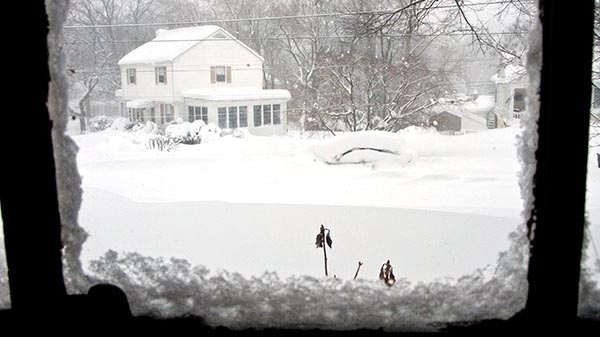
Blizzards are perhaps the most extreme example of winter weather.
Severe winter weather is a reality for many states in the Midwest and Northeast.
Whether forecasters expect a severe or mild winter, those predictions are based on averages. Even a so-called mild winter can have periods with heavy snow or extremely low temperatures. Blizzards are perhaps the most extreme example: heavy snow driven by high winds and whiteout conditions.
So how does one prepare for severe winter weather?
The first inclination for many of us is to drive to the closest grocery store and stock up on the essentials to help carry us through the upcoming event! While adequate provisions are an important consideration, there are a number of steps you can take to protect yourself and your family:
- Pay close attention to weather warnings and alerts so you know the storm’s timeline.
- Charge electronic devices. Now is the time to adequately charge your cell phone, laptop or other electronic devices. Once charged, try not to use them unless absolutely necessary. You may want to consider purchasing a hand-crank charger to serve your devices. A battery-operated radio is also a good investment.
- Stay inside and off the roads. You risk being stranded in your vehicle, which could be life threatening. In addition, municipalities typically ban travel in extreme winter weather.
- Have an adequate supply of non-perishable food already stored at your home. Don’t wait until the storm hits, because supplies in stores could be depleted. Remember to plan for pets.
- Have an adequate supply of bottled water. Experts suggest a gallon of clean drinking water per person, per day. Again, don’t forget pets!
- Blankets and warm clothing seem obvious. However, you will need enough blankets to keep warm in an emergency in case your normal electric or gas heat is disrupted. Consider hooded sweatshirts and mittens.
- Have a sufficient supply of prescription medications on hand.
- A camping stove or grill can be a wise investment. However, be careful to properly ventilate when cooking with any combustible fuel to avoid carbon monoxide poisoning.
- You may want to consider an emergency generator as an alternate source of power. Our blog, Lights out: Preparing for extended power outages, provides additional tips.
- If your home sustains any damage as a result of the storm, please contact your insurance agent or representative to file a claim.
With any luck, the storm will be short-lived and your supplies will be sufficient for the duration of the storm. When the danger has passed, remember to restock on non-perishable food and other supplies. If appropriate steps are taken, the memory of the storm will be just that, a good memory.
More information about planning for extreme weather is available in the Federal Emergency Management Agency’s How to Prepare for a Winter Storm guide.
This loss control information is advisory only. The author assumes no responsibility for management or control of loss control activities. Not all exposures are identified in this article. Contact your local, independent insurance agent for coverage advice and policy service.
